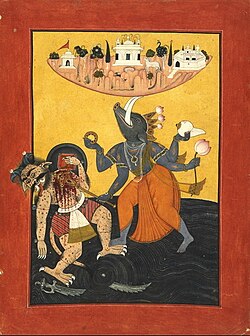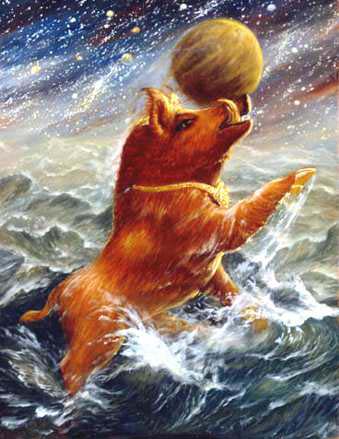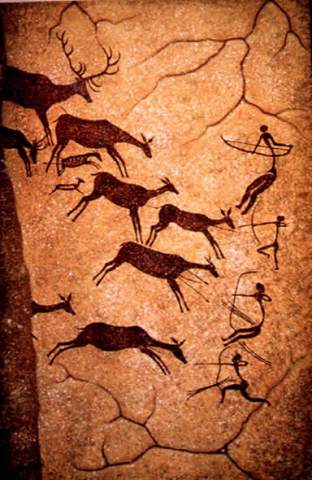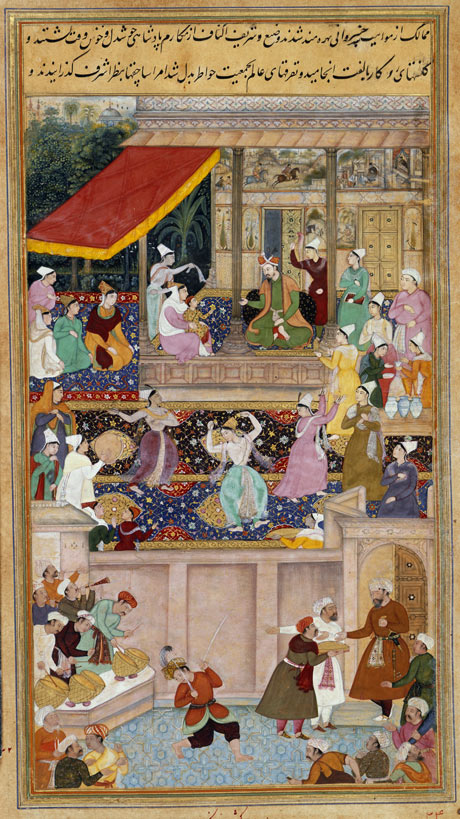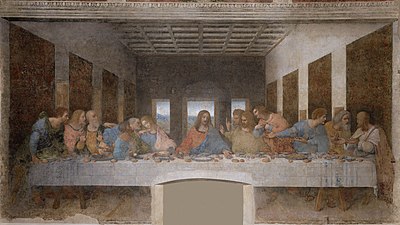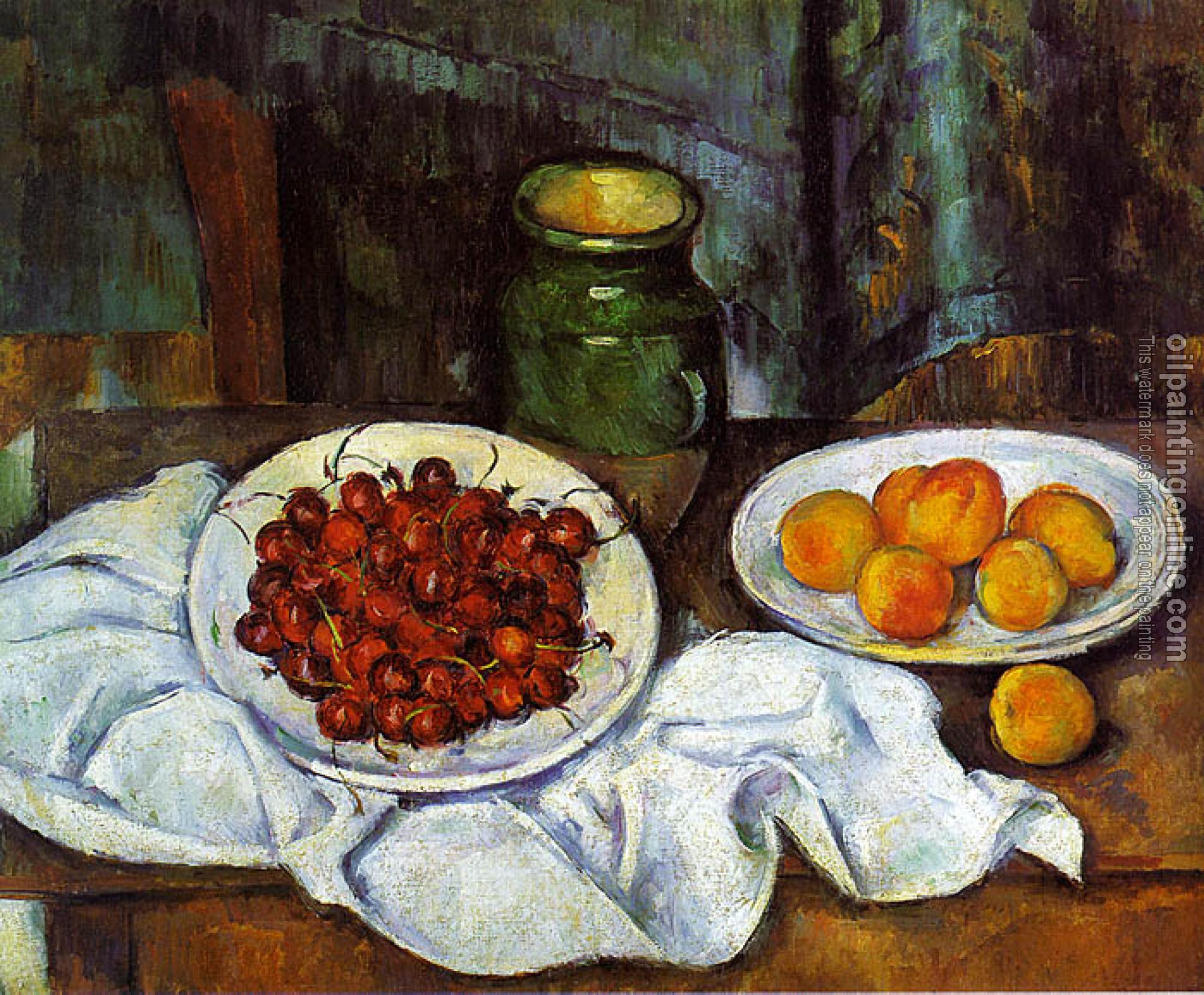Bhagat ji,
Very strange theory, one which I’m guessing was spun only recently, perhaps even in the course of this very discussion.
It's ancient.
Which particular teaching? One that originated from the Buddha or someone else?
I don't feel restricted to any particular set of words, as long as they sail my points to you I am fine with them.
Who is talking about the use of words, it is the ideas you set sail that I question.
Our mind functions using conceptual frameworks. If any description of the mind can be given, it is conceptual framework building entity. Mental activities consist of either correct concepts, incorrect concepts and observation of reality based on these concepts, and further the mind predicates based on it's internal model, i.e. the conceptual framework under which it operates. The conceptual framework involves mental representation of what is perceived. It is a conception of the perception. The perception being sense experience.
You need to take care not to mix different experiences up. Perception or memory is a mental reality which accompanies all consciousness, including thinking. It arises with sense experience but together with consciousness and several other mental factors, each performing their individual functions.
What exactly do you mean by the following?
Quote Bhagat: These two are woven into each other. Your conception gives rise to your perception and your perception gives rise to your conception. <end quote>
Please explain to me the process. Better still, point out the ancient text which teaches this.
One could also say they both arise simultaneously. Two running threads influencing each other's movement.
So there are two separate streams of experiences running in parallel? Is this your own theory or from the ancient text that you've read? And you think that this is in line with your own experience?
Who knows which one started running first? All you know is that they are running and their paths are woven into each other.
So there is one chain of experience first and then another following it and these two then influence each other, and would this give rise to a third stream?
Again, a reference to some ancient text would be appreciated.
Quote: And how can it be weakened and by what, by mindfulness and wisdom?
This is like asking "how can you get on top of Mt. Everest and by what, by being on top of Mt. Everest?"
So are you saying that weakening the hold of concepts is not the function of mindfulness and wisdom but that these in fact are the end results? If so, what is it that weakens the hold?
The question has not been answered. Wisdom arises in a mind who have won over it's own processes.
Again, so what exactly works to “win over”, not ignorance and attachment for sure, and you are saying that it is not mindfulness and wisdom either? And please also explain what “winning over” actually means and involve?
This is not under anyone's control. All we can do is have the intent of winning over our mental processes, the stronger the intent the more likely we are to climb Mt. Everest.
But is there any "self" who can either control or not control?
And you are saying that if I *intend* to win over the mental process, the process has already begun? There does not need to be any understanding, just have the intention, regardless of whether this is motivated by ignorance and attachment, by faith, or anything else, it is the Path? All I need then is to be ambitious enough and soon I will get what I want….?
Quote: If there can be mindfulness and wisdom at the level of thinking, why not immediately following upon a sense experience?
Once present, they are always there. And once present they are not longer restricted to any particular conceptual framework or sense experience.
And you have said that mindfulness and wisdom are end results and not the Path….
So what mental factors qualify as Path, intention and something else, or only intention?
Quote: And what does it mean by weakening the hold of conceptual framework?
You believe certain things about reality and you have been accumulating these beliefs from before birth. They shift and change, and transform as you read about Buddha's teachings, as you observe them in daily life, and you speak with others.
So this is what you mean by, "weakening the hold of concepts", namely to change one's interpretations and therefore the framework of one's own thinking. But didn't you at first refer to this weakening in association with the idea that concepts block the vision and therefore must be pushed aside? Anyway, read my comments below.
Now this is all great because Buddha's teachings is a gold mine and you are the miner that mines the gold in it and little by little you do attain some gold. The gold is wonderful. It gives you something to do, perhaps it gives you a purpose, or whatever you get out of it, you continue to mine this gold. Accumulating it little by little. You work hard for it, and you get the benefit of gold. Maybe you are mining a lot of it, and have more of it than many others you know.
Well, if you are talking about the Buddha’s teachings, I must tell you that what he really taught is very different from what you express above.
The first step begins with wisdom at the level of hearing or intellectual understanding. And this actually refers to moments when understanding does arise and not otherwise. This means that if one has one moment of understanding in a day, only that moment counts as being a Buddhist on the Path. At other times, if there are moments of generosity, morality, kindness and so on as a result of being inspired by the Buddha’s teachings, this too is good. However if any of this is taken for “self”, it is opposed to the Dhamma.
Intellectual understanding, direct understanding and realization all must agree with each other. Therefore *the concepts don’t change*. What changes and accumulates is the depth of understanding and other wholesome qualities which must act as support, re: the Perfections. Most notably is the detachment which accompanies each instance of understanding, such that this in fact acts as sign of whether or not one is on the right track.
Your imagery above is therefore misleading. No grasping attitude towards the teachings, as in“mine the gold”, “something to do”, “having a purpose”, “work hard for it” and “get something out of it”. It is about understanding all the way, which as I said, is accompanied by detachment. Understanding leads the way and does not mind whether or not there is opportunity to open a text to read or recording to listen to. More importantly however, it knows that the teachings are all about the reality “now”, which does not require any label / concept to be applied to. Indeed, the distinction between realities vs. concept is the first step to take, and so a person who has only intellectual understanding will know where he is at and what the purpose of studying the teachings is, namely understanding the reality by the characteristic and not just think about it.
But you must let go of this gold.
Detachment is necessary indication from the very first step. If no detachment is associated with the study, then the study must be wrong.
Keep mining but once you get the gold, give it to someone else and move on to mining more. If you cling to the gold, that would be a strong hold of the conceptual framework.
For someone with right understanding even at the intellectual level, there is no need to think about letting go. This is because he knows that detachment comes with understanding itself, and any intention to “let go” short of such understanding must be the result of the influence of attachment to “self”.
In other words, in encouraging that understanding be developed, detachment is implied. On the other hand, when someone says to “let go”, this shows lack of understanding.
Letting go / detachment with the idea of self is a contradiction.
If you let go of the gold you mine and the gold you have already accumulated, then you have successfully weakened the conceptual framework.
Any “holding” would be the function of grasping. Without grasping at the level of sense experience, there'd be no grasping of concepts. The concepts themselves don't do anything. A Buddha conceives of a rose but has no attachment to it, you and I think “rose” not without some level of attachment.
Quote: are you suggesting that the sense experience has not in fact fallen away but remains at the background behind the thinking process, such that the conceptual process being weakened is akin to clouds that were blocking the sun, are blown away?
No you see the when sense experience "remains at the background" this is part of the mental activities that create the conceptual framework. It is also known as memory.
You identify memory of sense experience as akin to the experience existing in the background?
Memory or perception as I said, arises with *all* instance of consciousness.
A concept of visible object is not the visible object itself and must in fact be understood as such. Indeed this can only happen if wisdom arose to understand the sense experience for what it is by its characteristic. It has nothing to do with the fact of memory arising, nor is there a need to stop the thinking process.
Quote: You mean sense experiences and their objects do not actually fall away, but only change constantly?
They can fall away.
They can or they must?! Are they not fleeting in nature? See, you don't even know what I'm referring to.
When they do it can no longer be called sense experience though. So within the domain of sense experience, it is a running river, constantly changing.
What is it exactly that is changing? In one sense process which consists of a series of consciousness, only one of these is the actual experience of seeing, hearing etc. The rest are different types of consciousness performing each their specific functions. Each one of these has a lifespan of something like, a trillionth of a second. So what is it that changes?
As you say: no two moments are the same in terms of both the observer as well as that which is observed
I said this as representative of science. I would not make the kind of statement with regard to the understanding of mental reality and physical reality.
Quote: You say that there is meditation on sense experience and there is meditation on concepts. By virtue of what would these be the same in terms of function? You make a general reference to “meditation” without saying what exactly it is. Or is this similar to the idea that “all paths lead to the same goal”
Hmm, "all paths lead to the game goal", throw this away it's not helping the discussion.
Have you not suggested in many of your discussions, the idea that different set of beliefs / practices can all lead to enlightenment, including apparent opposite ones such as dualism and non-dualism? Have you not stated that much of the difference is only in terminology and culture in which each religion / philosophy arose?
Meditation as in studying the sense experience and conceptual framework, through observation and mining Buddha's teachings.
Wow! You try to cover all the bases.
So there is “studying” and there is “observing”. Are these functions by two different realities (or semi-realities)? And what does “mining” mean? And all this you put under the general idea “meditation”? Or are you in fact referring to some conventional set of activities which include reading / listening to the teachings and sitting to concentrate on something?
But please answer my original question: “By virtue of what would meditation / study of sense experience be the same as that of concepts in terms of function?”
I say that sense experience and their objects are understood by their individual characteristic, each different from the other. Concepts being the product of thinking can only be thought about variously, and this is just more thinking with concepts, not understanding.
Quote: And you are saying that meditation can know sense experience as well as concepts, but it can't know reality. And that this so called “reality” has a mind of its own and will make itself known to whom and when, no one can ever know? Hmm, the strange theories keep issuing forth unhindered.
It would appear so.
So sense experience is not reality. But do explain to me how a concept is known to be concept if not by virtue of understanding what reality is?
Quote: What good does this do for me?!
You are asking me to go by concepts which I can’t at any level relate to, and expect that one day I will realize the truth of what they refer to?!! Is this not a blind being led by another blind? Do you not feel any responsibility towards making things clear at the level of theory? You can’t at least tell me which doorway this ultimate reality is experienced through? Why should I not consider this a cop out on your part?
I hope I have made things clear in this post. I am actually not asking you to go by anything. You ask me about what I know, and I spill the beans. Do you care about what I have to say?
Not with regard to this particular question.
The experience through the five senses and the mind is what everyone experiences. When guiding others, these are therefore the reference points to take. A child would know what I am talking about when I say that seeing sees or hearing hears and thinking thinks. This is because they are the things he himself experiences in the course of his daily life.
But you in denying that these are real, are pointing out to me the existence of an ultimate reality which never forms part of my experience. And my question to you therefore is, which doorway, the five senses and mind, is this ultimate reality experienced through?
Do I care about what you have to say? I do read what you express of course. But yes, if you tell me that you have experienced something which I or someone else has not experienced, I do not give any importance to it.
Quote: I know only real and not real. Mental realities such as seeing, touching, thinking, feeling, aversion, kindness and physical realities such as, sound, taste, masculinity are real. Concepts such as keyboard, mutton, flower and house are unreal. The former exhibit individual as well as the general characteristics of impermanence, insubstantiality and non-self and knowable by wisdom / insight, whereas the latter are only objects of thinking without any such characteristics. So what distinguishes something as “less real”?
You are on the right track. What you say is unreal is what I say is less real than what call real.
I am saying what you are calling real is less real than something that is ultimately real.
Real > Sense experience > Conceptual framework
So what is your definition of “reality”? And please do tell me how this “ultimate reality” that you are referring to is not just an idea / concept?
The way to weaken the hold is to go from right to left. So CF is weakened by going deeper in sense experience, sense experience is weakened by going into what is real. I would say one is a Buddha when they have won over the three.
You still have not answered my question, but let me put it a different way. How is a concept studied whereby it is seen for what it is?
I say that if you suddenly came to understand the distinction between reality and concept, you'd know that sense experience are real and what you call real is only concept. And this is what understanding the Buddha's teachings does. Because what the Dhamma is about and aimed at, is *now* and this now is defined by the characteristic of either a mental or a physical *reality* appearing to consciousness and understood by wisdom. Therefore when thinking about the existence of the so called “ultimate reality”, the consciousness, the perception, the feeling and so on associated with this is what can and must be understood. And when this happens, this conception re: ultimate reality, will be seen to be a fiction and not taken seriously.
Quote: You mean sound, smell, pressure, nutritive essence are mental realities, and so are, tables, mountains, chimpanzee and TV? And what kind of study are you referring to when you say, “The more you study the more there is to be studied”?
Any kind of study you can think of.
If you mean the study of mathematics, science, history, geography, medicine, psychology and G.K., I say that, except for conventional living, these are completely useless. And of course you know what I consider as the only useful study…
The concepts need to be studied because they are influencing your sense experience, in ways you can only find out by studying them. Going deeper into their interaction would be part of mastering them both.
How does the concept of rose influence the experience of visible object by seeing consciousness? Is it not that a newborn animal or human will experience sense objects but have no conception in terms of some “thing”, let alone identify that thing as a rose or a face?


 I love how you say "conjured up" like it's some sort of magic trick. But of course, theories are magic tricks that the mind performs.
I love how you say "conjured up" like it's some sort of magic trick. But of course, theories are magic tricks that the mind performs.